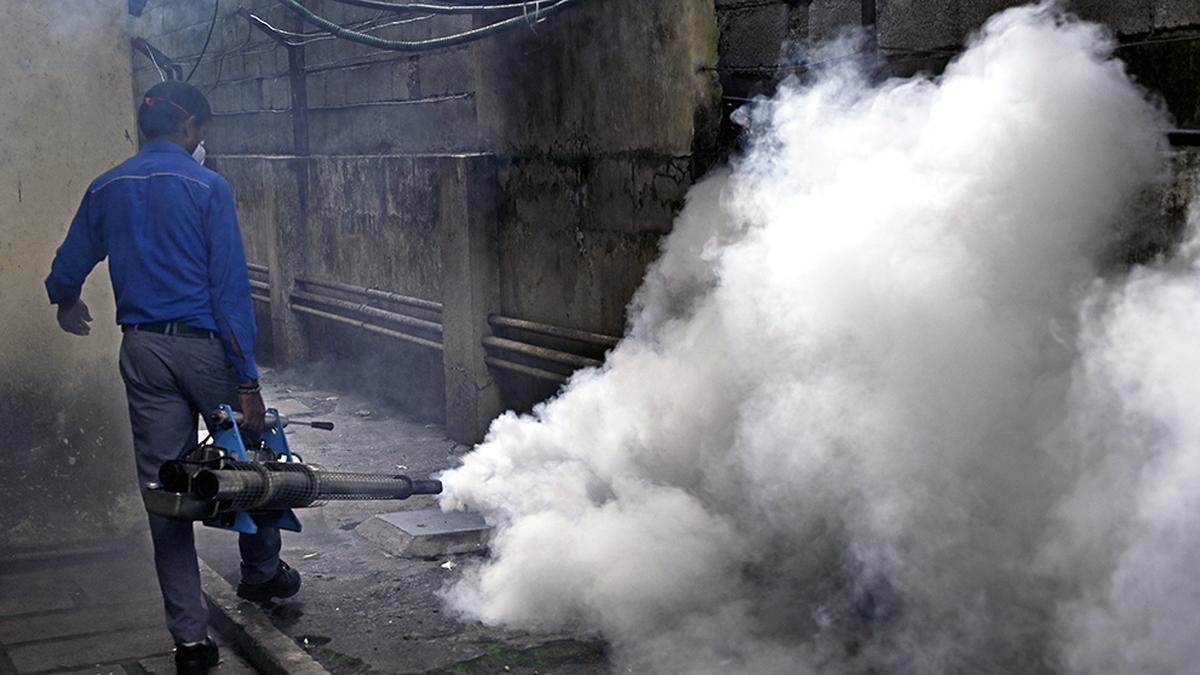
Endemic dengue may have helped stem severity of early COVID wave in India: study
The Hindu
Can the dengue virus beat the coronavirus and is it why the early wave of the pandemic in 2020 resulted in fewer COVID deaths or severe infections compared to Europe or North America where dengue is not endemic
Can the dengue virus beat the coronavirus and is it why the early wave of the pandemic in 2020 resulted in fewer COVID deaths or severe infections compared to Europe or North America where dengue is not endemic? Research from the CSIR-Indian Institute of Chemical Biology, Kolkata hints at these intriguing possibilities following an analysis of antibodies from people infected with dengue and testing them against a kind of coronavirus called murine hepatitis virus (mouse coronavirus). In research settings, this virus — being part of the same family of human coronaviruses — is considered a good surrogate to study the behaviour of the coronavirus strains that infected people during the pandemic.
Their results, published in the peer-reviewed Journal of Medical Virology this week, suggest that the antibodies following a dengue infection were able to ‘neutralise’ these coronavirus. For their analysis, the scientists relied on a combination of computer-modelling studies as well as cell-culture studies, the latter demonstrating how antibodies from dengue were able to engulf and bind the coronavirus proteins.
However, this protective effect did not necessarily expand to all coronavirus variants.
These latest studies build on the lab’s work from 2020 that blood tests specific to check for dengue sometimes led to a positive SARS-CoV-2 test.
“We experimentally demonstrated that serum samples from dengue patients have the potential to bind to and “mask” the surface of several coronaviruses, including SARS-CoV-2. We performed “virus neutralization” tests in cell cultures and showed that such “masking” by dengue antibodies can indeed, block coronavirus entry into susceptible cells,” Dr. Subhajit Biswas, Principal Scientist and the main author of the study, told The Hindu.
The dengue family of viruses are different from the coronavirus family and hence infection from one, in normal circumstances, is not expected to protect against the other. What is known about dengue is that there are four major serotypes, or strains, that cause dengue infections. Strains Denv-1 and Denv-2 are the most common in India. However, being infected with one does not protect against the other and, in fact, a re-infection involving a different strain can be more dangerous — a phenomenon called antibody-dependent enhancement (ADE) in dengue. Whether the prevalence of dengue in dengue-endemic countries of Southeast Asia may be triggering newer mutations in the coronavirus is a factor that needs to be investigated more extensively, the authors suggest in their study.
That the early stages of the pandemic saw a decline in dengue in India has been independently reported. The National Vector Borne Disease Control Programme of India reported a sharp decline of 75% (39,419 versus 1,57,315) in dengue incidence during 2020 as compared with 2019. “The possible reasons for this reduction could be lower transmission of the vector, less exposure due to COVID-19 lockdown, and, potentially, a disparity in the reported data possibly due to underdiagnosis or underreporting because of increased attention to the COVID-19 pandemic,” said a 2021 study in the American Journal of Tropical Medicine and Hygeine.

In a breathtaking display of musical prowess, the Singspirations, a Tiruchi-based choir group, in collaboration with the Glauben Ensemble and the Genesis Chamber Orchestra, presented a sublime performance of Wolfgang Amadeus Mozart’s Requiem in D minor, K. 626, in its entirety, mesmerising audiences.












